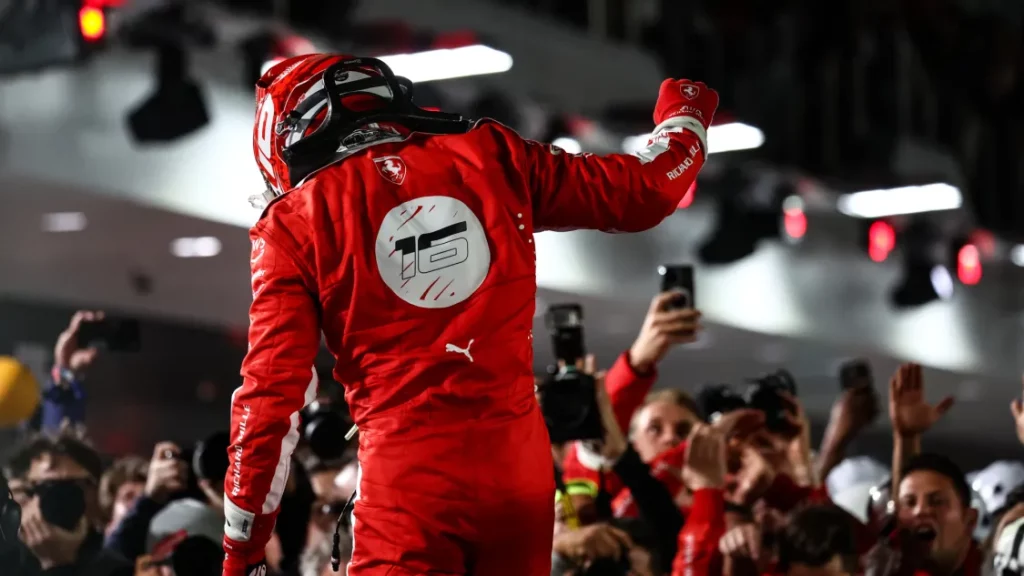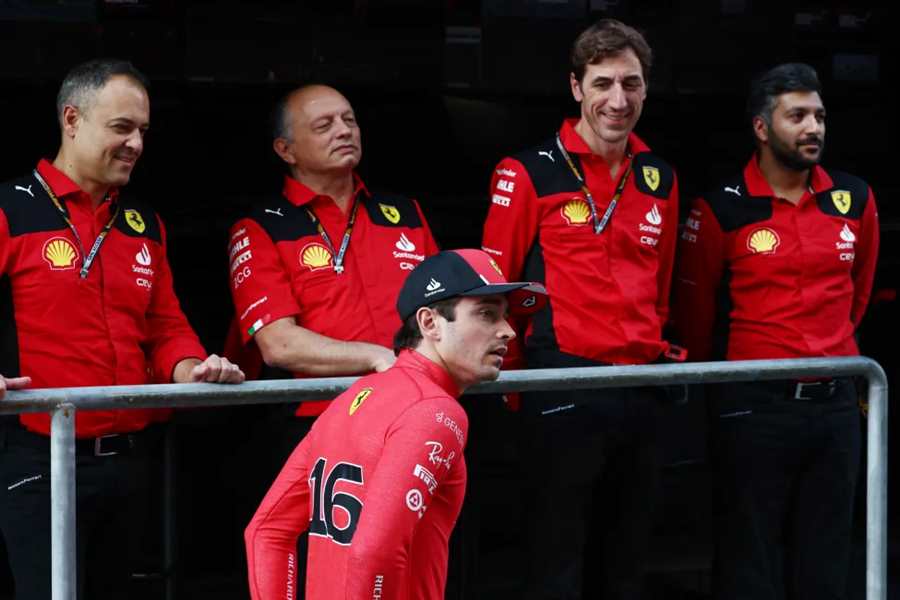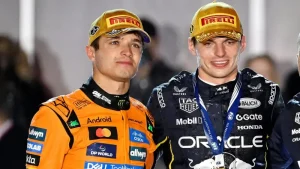
23 pole positions and just five Grand Prix wins makes for sorry reading for Charles Leclerc – but the numbers don’t tell the whole truth.
All things being equal, just as the clock ticks around to the top of the hour to signify the beginning of qualifying, Charles Leclerc would be a strong favourite to claim P1.
The Monegasque is arguably the fastest driver in Grand Prix racing over a single lap – as his 23 pole positions from his 125 entries claims. That’s a strike rate of 18.4%.
By comparison, Max Verstappen’s 35 poles from 185 entries is a strike rate of 17.29% – for the record, 104 poles from 332 entries gives Lewis Hamilton a hit rate of 31.32%.
Leclerc ranks 14th on the all-time pole list with his 23, one ahead of Fernando Alonso in 255 fewer entries, and has the most poles of any non-World Champion. For a driver with just six seasons under his belt, two of which (2018, 2020) were not in front-running machinery, is a testament to his speed over a single lap.
But take a look at his number of conversions into race wins. He has five in total – four of which have come from pole – which places him equal 50th on the all-time list alongside the first World Champion Giuseppe Farina, Clay Regazzoni, John Watson, Michele Alboreto and 1982 champion Keke Rosberg.
Now, if you are starting from pole position, the bare minimum that should be expected is to convert that into a race win – anything less must and should be considered failure.
But 19 times he has started from pole, Leclerc has not won. Indeed, Verstappen has 11 wins from Leclerc poles – just under three times the number.
CHARLES LECLERC POLES TO FINISHING POSITION
Pole Race Finish position
1 Bahrain 2019 3rd
2 Austria 2019 2nd
3 Belgium 2019 1st
4 Italy 2019 1st
5 Singapore 2019 2nd
6 Russia 2019 3rd
7 Mexico 2019 4th
8 Monaco 2021 DNS
9 Azerbaijan 2021 4th
10 Bahrain 2022 1st
11 Australia 2022 1st
12 Miami 2022 2nd
13 Spain 2022 DNF
14 Monaco 2022 4th
15 Azerbaijan 2022 DNF
16 France 2022 DNF
17 Italy 2022 2nd
18 Singapore 2022 2nd
19 Azerbaijan 2023 3rd
20 Belgium 2023 3rd
21 United States 2023 3rd but later DSQ
22 Mexico City 2023 3rd
23 Las Vegas 2023 2nd
Charles Leclerc’s failures from pole
Charles Leclerc’s very first pole at the 2019 Bahrain GP was set to be translated into a maiden Grand Prix win, before an engine cylinder stopped working and Hamilton and Valtteri Bottas reeled him in at seconds per lap. He held onto third with the help of a late safety car.
He then converted poles #3 and #4 into his first two wins later that year in Belgium and Italy – doing so after the death of close friend Anthoine Hubert in the F2 feature race at Spa, and after a wheel-to-wheel battle with Hamilton at Monza.
The second year driver was then denied a hat-trick of wins in Singapore when Sebastian Vettel overcut the sister Ferrari.
But the most egregious failures of Leclerc to convert pole to win came from poles #8 and #16 – in Monaco 2021 and France 2022, respectively. He crashed heavily in Q3 at the swimming pool on his home streets and Ferrari risked not repairing the driveshaft – which promptly failed on race day morning leading to a DNS.
A year later in the south of France, he was leading when he chucked the F1-75 at the barrier on Lap 22. That was an unforgivable mistake and one that all but secured Verstappen a clean run to his second title after mechanical failures put Leclerc out of the lead from poles #13 and #15 in Spain and Azerbaijan.
From his haul of five poles in 2023, as many as every other driver not called ‘Max Verstappen’ put together, he collected four third places on the road and second in Las Vegas from his most recent.
But in the United States, his third place was expunged after failing the post-race plank wear check meaning from pole positions, Leclerc has finished P1, P2, P3, P4 and posted DNF, DNS and a DSQ.
That is an abysmal statistic – but on this occasion, the cold, hard numbers tell a lie, and rather one about the miracles Leclerc works on a Saturday.

The numbers lie
Taking out those two huge blunders in Monaco and France when he took himself out of the race, most of his failures from pole have not been his fault.
There is a case to be made for Ferrari having far superior qualifying machines than on race day.
Back in 2019, his purple patch of poles after the summer break coincided with the engine trickery being deployed that ended with the FIA settlement in early 2020 while in 2022 and 2023, the overall Ferrari package was not strong enough to cope with the onslaught from Verstappen in the Red Bull.
Repeated strategic, reliability, operational and mechanical failures cost Leclerc while the SF-23 of 2023 was just no match over a race distance to the RB19.
But Leclerc ended the season strongly after a minor floor update in Japan unlocked a new feeling behind the wheel.
He and Ferrari ended the season with momentum, which is crucial heading into the winter – and the team cut out the repeated blunders under Frederic Vasseur’s leadership that cost Mattia Binotto his job.
Leclerc’s next pole must be converted into a sixth Grand Prix victory.








